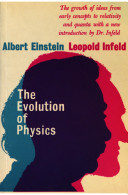Scientists Read the Book of Nature
IN IMAGINATION there exists the perfect mystery story. Such a story presents all the essential clues, and com- pels us to form our own theory of the case. If we follow the plot carefully, we arrive at the complete solution for ourselves just before the author's disclosure at the end of the book. The solution itself, contrary to those of inferior mysteries, does not disappoint us; more- over, it appears at the very moment we expect it.
Can we liken the reader of such a book to the scientists, who throughout successive generations continue to seek solutions of the mysteries in the book of nature? The comparison is false and will have to be abandoned later, but it has a modicum of justification which may be extended and modified to make it more appropriate to the endeavour of science to solve the mystery of the universe.
This great mystery story is still unsolved. We cannot even be sure that it has a final solution. The reading has already given us much; it has taught us the rudi- ments of the language of nature; it has enabled us to understand many of the clues, and has been a source of joy and excitement in the oftentimes painful ad- vance of science. But we realize that in spite of all the volumes read and understood we are still far from a complete solution, if, indeed, such a thing exists at all. At every stage we try to find an explanation consistent with the clues already discovered. Tentatively accepted theories have explained many of the facts, but no general solution compatible with all known clues has yet been evolved. Very often a seemingly perfect theory has proved inadequate in the light of further reading. New facts appear, contradicting the theory or unex- plained by it. The more we read, the more fully do we appreciate the perfect construction of the book, even though a complete solution seems to recede as we ad- vance.
In nearly every detective novel since the admirable stories of Conan Doyle there comes a time when the investigator has collected all the facts he needs for at least some phase of his problem. These facts often seem quite strange, incoherent, and wholly unrelated. The great detective, however, realizes that no further in- vestigation is needed at the moment, and that only pure thinking will lead to a correlation of the facts collected. So he plays his violin, or lounges in his armchair en- joying a pipe, when suddenly, by Jove, he has it ! Not only does he have an explanation for the clues at hand, but he knows that certain other events must have happened. Since he now knows exactly where to look for it, he may go out, if he likes, to collect further con- firmation for his theory.
The scientist reading the book of nature, if we may be allowed to repeat the trite phrase, must find the solution for himself; for he cannot, as impatient readers of other stories often do, turn to the end of the book. In our case the reader is also the investigator, seeking to explain, at least in part, the relation of events to their rich context. To obtain even a partial solution the scientist must collect the unordered facts available and make them coherent and understandable by creative thought.
Notes:
But unlike a detective novel, they can't flip to the last page and they may not even find an answer.
Folksonomies: nature science metaphor scientific process
Taxonomies:
/hobbies and interests/games/board games and puzzles (0.492325)
/society/crime/personal offense/homicide (0.473285)
/science (0.464900)
Keywords:
solution (0.933581 (positive:0.065588)), detective novel (0.885012 (positive:0.534957)), mystery story (0.850153 (positive:0.294485)), perfect mystery story (0.829719 (positive:0.807308)), oftentimes painful ad (0.812327 (positive:0.813228)), seemingly perfect theory (0.791551 (positive:0.909009)), book (0.788950 (positive:0.208124)), complete solution (0.785879 (positive:0.025032)), great mystery story (0.772667 (negative:-0.512823)), clues (0.752821 (positive:0.294243)), facts (0.702915 (negative:-0.329131)), essential clues (0.677114 (positive:0.723032)), successive generations (0.614127 (neutral:0.000000)), inferior mysteries (0.610547 (negative:-0.613801)), final solution (0.591792 (positive:0.303363)), trite phrase (0.580990 (negative:-0.696035)), general solution (0.574781 (positive:0.745113)), impatient readers (0.573574 (negative:-0.723085)), unordered facts (0.570267 (neutral:0.000000)), perfect construction (0.569707 (positive:0.670378)), nature (0.568020 (positive:0.603448)), New facts (0.566841 (neutral:0.000000)), great detective (0.565654 (positive:0.508673)), Conan Doyle (0.565187 (positive:0.676635)), rich context (0.560725 (positive:0.516553)), partial solution (0.560533 (positive:0.572942)), armchair en (0.554283 (neutral:0.000000)), certain other events (0.540434 (neutral:0.000000)), vance (0.434609 (neutral:0.000000)), moment (0.431496 (neutral:0.000000))
Entities:
scientist:JobTitle (0.892422 (negative:-0.100517)), investigator:JobTitle (0.712164 (positive:0.280981)), Jove:Person (0.621736 (negative:-0.265772)), vance:Person (0.576016 (neutral:0.000000)), firmation:Person (0.526363 (positive:0.015920)), Conan Doyle:Person (0.497645 (positive:0.676635)), coherent:OperatingSystem (0.439060 (positive:0.607477)), rudi:Person (0.438277 (neutral:0.000000)), vestigation:Person (0.432197 (neutral:0.000000))
Concepts:
Detective fiction (0.970120): dbpedia | freebase | yago
Explanation (0.924127): dbpedia | freebase | opencyc
Arthur Conan Doyle (0.919166): dbpedia | freebase | opencyc | yago
Mystery fiction (0.870043): dbpedia | freebase
Understanding (0.859428): dbpedia | freebase | opencyc
Knowledge (0.821781): dbpedia | freebase
Crime fiction (0.815719): dbpedia | freebase | yago
Theory (0.775449): dbpedia | freebase






